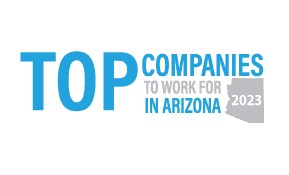The 3 Pieces of Career Advice I Tell Every New Graduate
As the CEO of a growing consulting firm, one of my top priorities is to meet new talent. To make that happen, I rack up frequent-flyer miles traveling to university classrooms where I can meet with students who might have an interest in our line of work, and with the faculty who help mentor these students.
I get a lot of thoughtful questions from students. The ones for general career advice are among my favorites, in part because so much of what’s true—at least for my field—often goes unsaid. Here are three things I wish I’d been told when I was just starting out.
1. Learn how to learn.
I’m a frequent guest lecturer in classes, so one question I hear a lot is what classes to take.
Candidly, I could have used an extra math class or two. Although my career began in an ultra-technical area, it soon veered into more generalized problem-solving. (The same is true of many of my colleagues.) I often joke to people that I should have taken classes in psychology, classics, and communications. Why? Because business is all about understanding and relating to people.
Of course, with advice like that there’d be no end in sight—maybe I’d still be taking classes and lugging my books around night class after night class. (I also wonder whether I could successfully make the switch to studying on an iPad.)
So the answer isn’t to stress over that one extra class. It’s not going to make or break a 40-year career. Instead of asking what classes you should take, ask: “How do I train myself to be a lifelong learner?” Because there’s simply no way that a few extra courses today can prepare you for the turbulence and left turns of tomorrow.
Instead, train your mind to be comfortable with discomfort. Learn to love learning. Practice at assimilating new information quickly and being cognitively flexible. When you run into a problem you don’t know how to solve, stay cool. Build the endurance to size up the problem and go looking for answers.
By all means, plan your courses carefully. More importantly, though, plan how you’ll keep learning every single day after you graduate.
2. Earn the respect of people you know.
There’s a lot of mystique around the topic of networking: how to do it, whether it works, mistakes to avoid, and so on.
I’m no expert at networking. But can I offer a thought? It’s great to follow up with contacts, beef up your LinkedIn profile, and keep a pair of Cole Haans on your feet. But while you’re doing that, don’t forget about your reputation among the people you see every day. Chances are, those people care much more about what it’s like to work with you than they care about the brand of shoes you wear.
My father is from Greece. When I was growing up, Dad would tell me about the ancient Greek sculptor Phidias, who, under Pericles, built most of the surviving statues on the Acropolis. After Phidias submitted his bill to the city, Athens’ civic leaders demanded to know why he’d finished the statues all the way around when—after all—nobody could see the back. He responded:
“You are wrong. The gods can see.”
Like this artist, strive to make your work immaculate. Begin your networking at home by doing good work every day. Maybe your coworkers or classmates will notice, and maybe they won’t. The point is: It’s the right thing to do. And it’s how you build an exemplary reputation.
3. Find the jobs that fit.
So much interviewing advice is obsessively geared toward helping you secure an offer.
Please, no. Yes, we all need jobs. What nobody needs is a job that isn’t right.
At their best, job interviews help both sides learn about each other so that each can make an informed decision. No one should be intent on just closing a deal. And, yet, somehow job interviews have devolved into an exercise of hiring managers pitching their firms while interviewees pitch themselves.
The reality is that no firm is right for all candidates, and no candidate is right for all firms. That’s why fit is so important. Unfortunately, too many candidates are taught to game the process. They’re convinced they must have a slick response to every question. (Practice, as they say, makes perfect.) Suppose a hiring manager asks how you handle ambiguity. If it happens that you need high levels of structure, much of the interviewing theory out there would have you keep that information to yourself.
This is utterly ridiculous. Interviewing well doesn’t guarantee success in the job. And if the fit isn’t good, this will become painfully clear, and neither side will be thrilled. There’s nothing wrong with improving your interviewing skills. That said, it’s entirely ancillary to what you should be trying to accomplish, which is to learn more about what you want to do and the sorts of companies that might offer that.
Do this instead. Research the company. Develop genuine questions that will help you truly understand the organization. Reflect on your goals, likes, and dislikes so that you can be in a better position to envision yourself in the organization as it really is, and not how you wish it might be.
Every organization—and every job candidate—has its quirks. Figuring them out should be the goal of any interview. From there, you can evaluate whether combining both sets of quirks will create value or end up destroying it.
************
There you have it: Three things I wish every new graduate could know. They also happen to be things that people my own age would have loved to have known from the get-go. Thanks for listening—and students, keep those questions coming.






